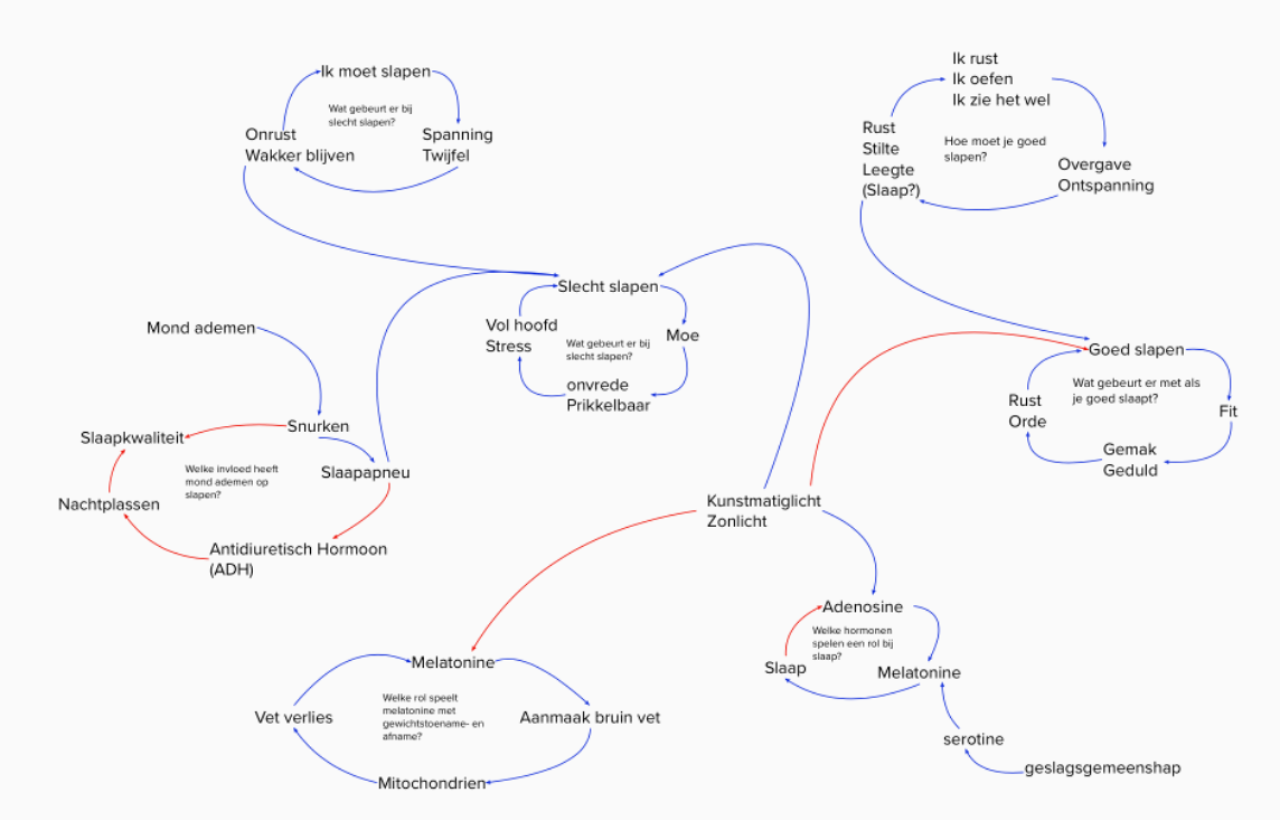Hi, my name is Jeron, a third year student of physical therapy. You are reading a short reflection on my mini research project on sleep. I designed, conducted and evaluated this project in 2021 during the Honors Program Creativity in Finance and Management.

The research
Purpose
My research focused around the aspects of sleep optimization and the systemic patterns that work against it. The purpose of the research was to broaden my knowledge about sleep and sleep patterns by using a system dynamics approach. As humans, we sleep one-third of our lives. Sleep plays an important role in various physiological systems as well as our mental health. So why wouldn't you want to know how to sleep well?
Research Question & Method
During the research, I talked to a diverse set of people asking the same question: what does a person need to get quality sleep, to wake up rested and recover for the next day? After each conversation, I made a Mental Model using Causal Loop Diagraming like the one below, that integrates all individual models into one. It was fascinating to see that the sleep specialist I talked to had many overlaps in their shared information.

Discussion
The biggest obstacle for getting good sleep is artificial light. Light has both its positive role in sleep but can also have a negative influence on sleep. Additionally, studied normal sleeping patterns and how these changed over the years. Nevertheless, it seems that our hormones play a major role in our ability to sleep well.
What surprised me during this research is that going to sleep is much more than closing our eyes. Sleep is a very complex physiological and mental system involving different hormones. I can say that sleep plays a major role in overall health.
A person needs between 7 and 9 hours of sleep to function properly. Research has shown that people who have less than 6 hours of sleep per day have a 2.4% decline in productivity, and these people have a 13% higher mortality risk. Yet on average, 15% of the population sleep less than 6 hours. (Christopher M. Barnes, 2019)
Conclusion
With this research, I can state that artificial light plays a major role in sleep deprivation. In addition, poor sleep hygiene and behaviour also play a major role in poor sleep quality.